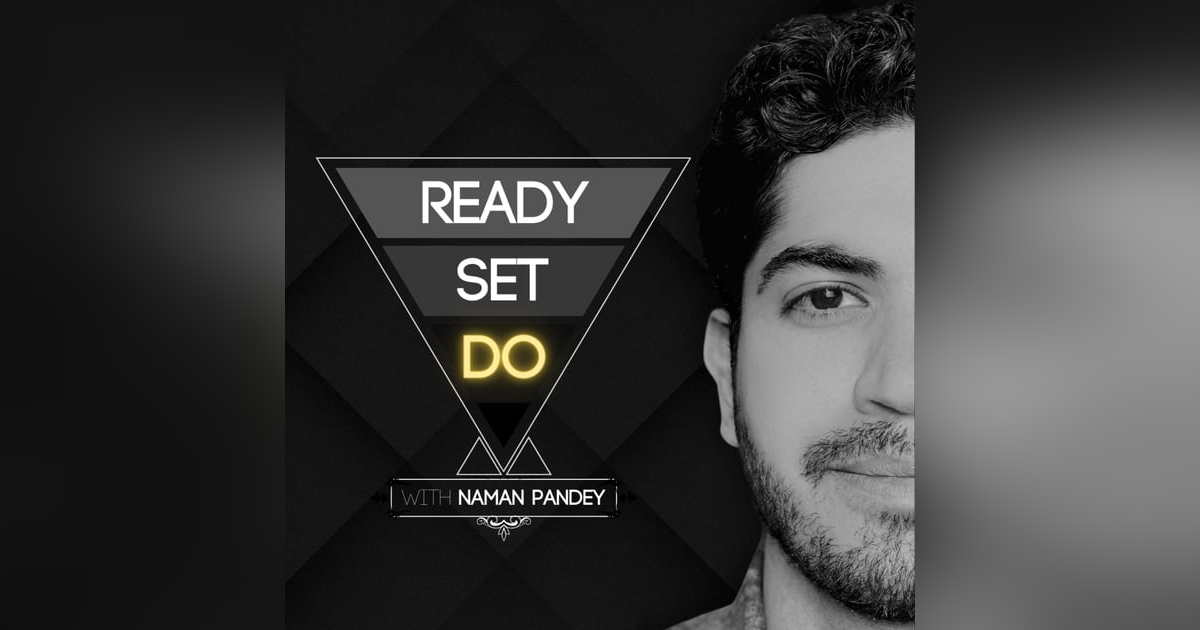How To Crack Machine Learning Interviews (Microsoft & Walmart Sr Data Scientists POV) - w/ Nirmal & Karun

In this episode my guests are Nirmal Budhathoki and Karun Thankachan. Nirmal is a Sr Data & Applied Scientist at Microsoft & Karun is a Sr Data Scientist at Walmart. We go over the incredible life-changing job-landing advice these two have shared with 1000s of mentees around the application process, what to expect, and how to prepare for ML interviews. Also, they've teamed up to write the book Decoding ML Interviews, which is an incredible one-stop shop for 100 expertly curated machine learning questions, and of course, their solutions.
Check out Decoding ML Interviews: https://onlyoneoutlier.gumroad.com/l/decodingML
In the high-stakes world of machine learning interviews, success hinges on more than technical know-how—it’s about showing how you think, adapt, and learn. In this episode of Ready Set Do, I sit down with Nirmal Budhathoki, Senior Data & Applied Scientist at Microsoft, and Karun Thankachan, Senior Data Scientist at Walmart. Between them, they’ve mentored thousands of candidates and distilled their insights into the book Decoding ML Interviews, a one-stop guide to 100 expertly curated machine learning questions and solutions.
From the first minute, Nirmal and Karun reframed interviews as collaborative problem-solving sessions rather than adversarial tests. They stress that interviewers want to see your analytical process—how you break down a question, communicate trade-offs, and arrive at a solution. Adopting this mindset transforms nervousness into curiosity and helps you engage your interviewer in a genuine dialogue.
A balanced study plan is key. Divide preparation into three pillars: foundational theory (probability, statistics, linear algebra), algorithmic coding (data structures, dynamic programming, graph algorithms), and system design (end-to-end ML pipelines and scalability). By rotating focus among these areas each week, you mirror the multi-stage format used by top tech companies.
Platforms like LeetCode remain indispensable for coding practice. Karun recommends a progressive roadmap: start with easy array and string problems, advance to medium-level tree and two-pointer challenges, then tackle dynamic programming and graph questions. Aim for consistency—solving three to five problems weekly and revisiting past questions to reinforce patterns.
Real-world projects set you apart. Nirmal advises building end-to-end ML applications—whether in NLP, computer vision, or time series forecasting. Document your journey on GitHub or your personal blog, using the STAR method (Situation, Task, Action, Result) to structure your narrative. Quantify impact with metrics like accuracy improvements or latency reductions to make your achievements tangible.
Why does Decoding ML Interviews stand out? It categorizes questions into probability, ML theory, coding, system design, and behavioral case studies, each with in-depth walkthroughs. The living code notebooks on GitHub ensure examples stay current, and planned annual updates keep pace with emerging techniques like transformers and diffusion models.
Timestamps:
00:00 Intro + Background
02:11 Structure of Machine Learning Interviews
06:40 Leetcode for Technical Screens
10:03 Building a Strong ML Foundation as a Student
15:24 Relevance of Projects in Interviews
21:06 Types of Qs in Decoding ML Interviews
26:20 Some FAQs in ML Interviews and Their Solutions
30:37 Future-Proofing the Book
33:30 The Importance of Code Examples
35:04 Nirmal & Karun Pick Their Fav ML Questions
38:55 Leveraging AI for Interview Preparation
42:08 Creative Approaches to Using AI Tools
45:44 The Value of Mock Interviews
48:21 Why You Should Get the Book




